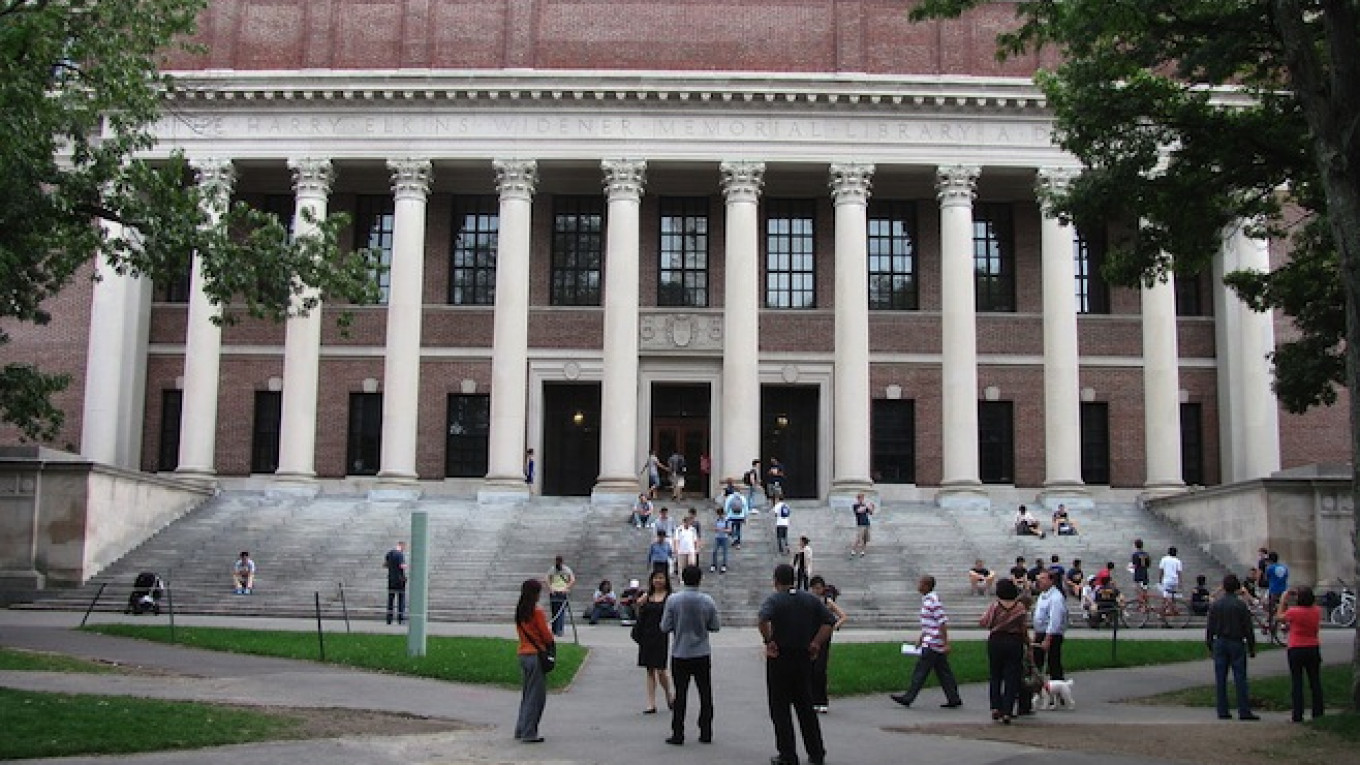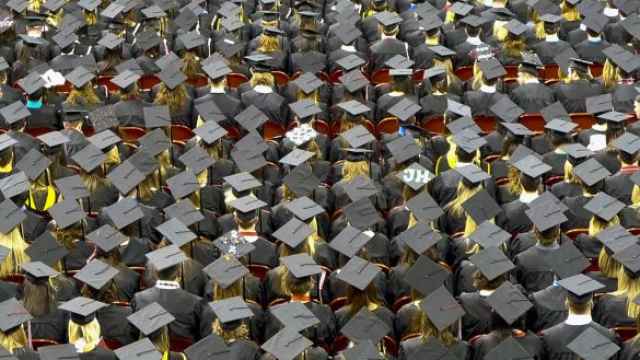The government is revising a program that allows graduates to study abroad at the state's expense and could limit it to nations and universities that are deemed friendly to Russia, the education minister said, amid worsening relations with the West.
"We are now carefully reviewing the list of universities where program participants, who have already been admitted, are studying," Education and Science Minister Dmitry Livanov told a meeting with lawmakers at the State Duma, the TASS news agency reported Wednesday.
When selecting foreign universities to participate in the program, known as Global Education, "we will naturally consider the foreign political situation," he was quoted as saying.
The remarks came just days after Russia deported four U.S. students who were attending a leadership conference in St. Petersburg for having the wrong types of visa. Immigration officials said the students from California were in Russia on tourist visas but participated in what was considered "sociopolitical activity."
Russia has also recently canceled its participation in the FLEX student exchange program, which is funded by the U.S. Department of State and had run successfully for decades. Moscow cited the failure of one of the Russian participants to return home after completing an exchange visit.
Continuing to use government funds for the study of Russian college graduates at Western universities will mean that "for our money, we will get highly skilled agents of foreign espionage services," lawmaker Valery Seleznev of the nationalist Liberal Democratic faction told the State Duma meeting, according to TASS.
The supposed spies "will know the weak spots of our economy better than anyone, and who will develop such sanctions that three years from now the dollar will cost 500 rubles," Seleznev was quoted as saying.
The Russian currency passed a historic low of 48 rubles to the dollar this month, battered by Western sanctions against Russia for its policy on Ukraine, a staggering economy, fleeing investors, and falling oil prices.
"We need to either wrap up the [foreign study] program, or exclude from it those countries that participate in the war of sanctions against Russia," Seleznev was quoted by TASS as saying. That would mean excluding most of Europe, along with the U.S., Canada, Australia and Japan.
Livanov promised to take those concerns into account and assured lawmakers that top-rate universities could also be found in China, India and other friendly nations, TASS reported.
The Global Education program offers government financing to Russian students who have been accepted for postgraduate study in "priority" fields at foreign universities. In return, the graduates must work in Russia for at least three years after graduating.
A Message from The Moscow Times:
Dear readers,
We are facing unprecedented challenges. Russia's Prosecutor General's Office has designated The Moscow Times as an "undesirable" organization, criminalizing our work and putting our staff at risk of prosecution. This follows our earlier unjust labeling as a "foreign agent."
These actions are direct attempts to silence independent journalism in Russia. The authorities claim our work "discredits the decisions of the Russian leadership." We see things differently: we strive to provide accurate, unbiased reporting on Russia.
We, the journalists of The Moscow Times, refuse to be silenced. But to continue our work, we need your help.
Your support, no matter how small, makes a world of difference. If you can, please support us monthly starting from just $2. It's quick to set up, and every contribution makes a significant impact.
By supporting The Moscow Times, you're defending open, independent journalism in the face of repression. Thank you for standing with us.
Remind me later.






